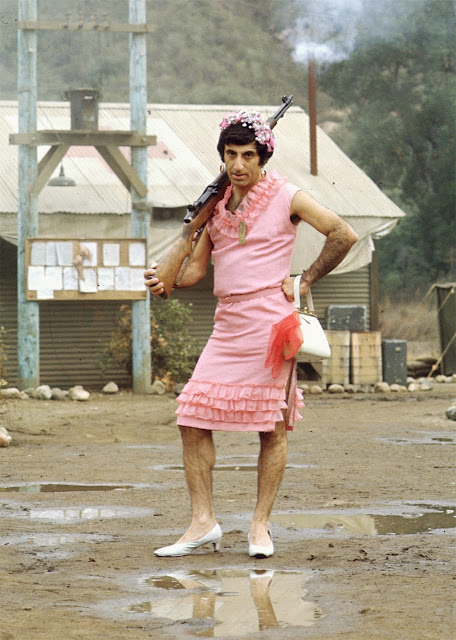Mass Formation Psychosis Recognition Day
Q: How did ordinary Germans think supporting the Nazis was a good idea and turn a blind eye to the horrors of The Holocaust? How did the people of Jonestown line up to drink the Kool-Aid? How about the mass suicides of Japanese citizens on the island of Saipan in WWII?
A: Mass Formation Psychosis
From the blog The Other McCain. Let's make this an annual thing so people never get taken in by such bullshit ever again! The fucktards on the left claim Mass Formation Psychosis is a made up thing and a dog-whistle to the "science deniers" that are not subject to plandemic panic porn and against all the jabs. I'm gonna do my part here.
- Call attention to the censorship campaign by which COVID-19 panic brigades are attempting to suppress criticism. If you look at the Google results, you’ll notice that the first page of results (which is all that most Googlers ever see) is dominated by “fact checks” and people endeavoring to “debunk” Mass Formation Psychosis as a “conspiracy theory.” This obviously reflects manipulation of the Google algorithm in an attempt to support censorship of Joe Rogan and others.
- Explain what “Mass Formation Theory” really means. There is nothing outlandish about the theory that Dr. Malone has outlined. When the “dominant narrative” is promoted by politicians and major media organizations — when they’re all on the same page, so to speak — most people will believe what they’re being told and react the way they’re instructed to react. The theory is a bit more complex and nuanced than can be summarized in a sentence or two, but the basic idea isn’t at all crazy or “extremist,” no matter what the self-declared “fact checkers” claim.
- Most critics of COVID-19 policy are not “anti-science.” This has been the problem with public reaction to the pandemic from the start. Various “experts” (including Dr. Anthony Fauci and the science/medical commentators on TV news outlets) presented themselves as having all the answers to COVID-19, and advocated restrictive policies as the One Right Way to fight the virus. Because these experts were presented as being the voices of “science,” anyone who criticized the restrictive policies was implicitly accused of being “anti-science.” This involved an appeal to a common prejudice among college-educated people, who cherish a self-image of being on the side of enlightenment, and who view themselves as engaged in a war against ignorance. To such people, it was easy to see Dr. Fauci as a heroic knight doing battle against the dragon of “anti-science.”



